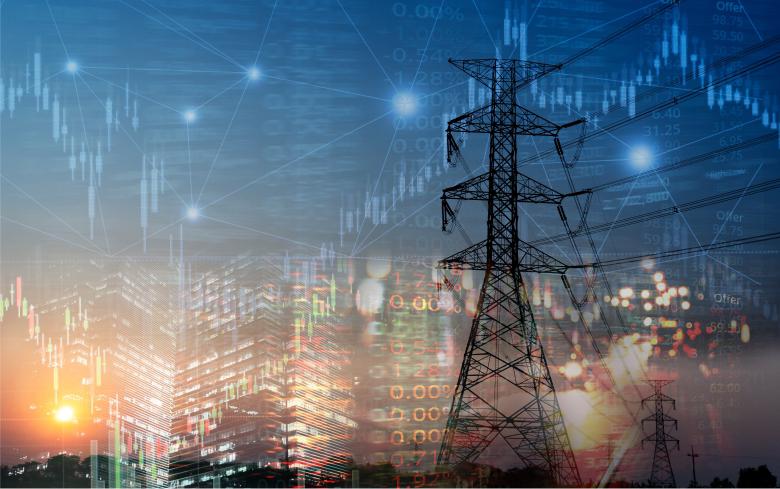Energy Price Shocks

Energy Price Shocks: Lessons from the Past and Way Forward
00:00 Welcome and opening remarks
07:48 Forecast: Oil market outlook
22:21 Lessons learnt from past energy shocks
31:03 Policy priorities for facing energy market volatilities
39:14 Price pressures, subsidies and price controls
42:08 The role of fiscal and monetary policy
46:21 The role of energy price search in inflation
49:23 The response from central banks
51:28 Developing countries and energy transitions
58:13 The role of OPEC in prices and renewable energies
1:00:21 Closing remarks
The Global Economic Prospects (GEP), published in January and June of every year, examines global economic developments, prospects, and policies, with a focus on emerging market and developing economies.
The June 2022 edition of the GEP describes how the damage from the COVID-19 pandemic and Russia’s invasion of Ukraine has magnified the slowdown in the global economy. The report also offers fresh insights into the recent energy price increase that has heightened uncertainty in energy markets, impacting the global economy and highlighting the need for polices to address the underlying demand and supply imbalances.
This World Bank event brings together a diverse panel of experts to discuss lessons from previous energy price shocks, prospects for energy and metal markets, and policy options to accelerate transition away from fossil fuels while shielding vulnerable groups from damaging disruptions.
Watch global experts and policymakers discuss their insights on clean energy transitions and energy security.
Learning Resources
- WEBSITE | Global Economic Prospects
- BLOG | The supply solution to stagflation
- BLOG | Energy market developments: Coal and natural gas prices reach record highs
- VIDEO | Commodity Markets Outlook – April 2022: The Largest Commodity Shock Since the 1970s
- INTERVIEW | Global Economic Prospects: Slowing Growth and the Risk of Stagflation
- WEBSITE | Energy
- WEBSITE | Macroeconomics
Read the virtual Q&A
Nada Snoussi:
What, do you think, are the main and most influential drivers of investments in green/renewable energies in developing countries?
Dollarzone:
Can the economics of supply and demand be reset? What happens, for example, if a barrel of oil goes to $50 today, what does that do to global prices and living conditions?
Jeetendra Khadan (World Bank):
Thank you for this question. Surging commodity prices have contributed to broadening price pressures and pushing inflation above central bank targets in the vast majority of inflation-targeting countries. These price pressures are having an adverse impact on living conditions, especially for those in low-income countries. You can find more information about these issues in our recent Global Economic Prospects publication
Inyengiyikabo Abolo:
What will happen to the current conventional energy sources (oil and natural gas) when we actualize the dream of clean energy?
russel reid:
What role has the financialization of commodities in recent years played in these price spikes? And do the commodity traders need to be properly regulated?
Jonathan:
Can we do something to avoid imbalances or just prepare answers once they come?
Jeetendra Khadan (World Bank):
Thank you for this question, Jonathan. The experience of previous energy price shocks has shown us that countries can tackle underlying supply/demand imbalances by focusing on policies that promote energy efficiency, investing in renewable energy sources, and pursuing policies to encourage consumers to shift toward low carbon technologies. You can find more information about this in our recent Global Economic Prospects publication
Kamande:
The world over needs new technologies to produce energy in environmentally friendly ways. How is world bank tapping into raw ideas mainly from the third world countries?
Jeetendra Khadan (World Bank):
Thank you for this question, Kamande. Agreed, in the last few years, the World Bank has invested more than $8 billion in clean energy, renewable energy access, and related infrastructure, and catalyzed over $20 billion in private investments in renewable energy generation capacity. You can find some examples here.
Allavo prosper:
How has the Russian invasion of Ukraine and covid 19 affected energy markets?
Jeetendra Khadan (World Bank):
Thank you for this question, Allavo. The war in Ukraine is exacerbating volatility in energy markets. Russia is the world’s largest exporter of natural gas and accounts for a significant share of coal and crude oil exports. The war in Ukraine has therefore led to significant disruptions to trade and production of energy commodities, exacerbating existing strains in energy markets. You can find more information about this in our recent Global Economic Prospects publication.
Doreen:
In Southern Africa we need to adopt waste-to-energy technologies, but the costs of setting up plants are quite high. Is there a possibility of getting assistance from the World Bank financially for us to adopt to this technology?
Mr.Fahad:
How can I join the program
Jeetendra Khadan (World Bank):
Thank you for your question! You can watch the event live this Friday, September 16 at 9AM ET. In the meantime, we invite you to take part in the poll found on this page and submit any questions that you would like to pose to our expert live-blogger and/or panelists.
Adamias:
What role is the World Bank playing in assisting non-governmental organizations in African countries and communities to sensitize and make green energy resources, like biogas appliances, available to the people in rural areas of the country for quick support for the threat being faced by the economy of such countries?
Krrahul:
What is the scope of energy generation from biowaste?
Manas:
How does financial inclusion play a role in food security?
Eunice Auma:
As we are addressing food security issues, can we also start intensifying talks on post-harvest loss and their solutions?
Jeetendra Khadan (World Bank):
Thank you for this question, Eunice. Agreed, policies should prioritize support for production and producers, facilitate increased trade, support vulnerable households and invest in sustainable food and nutrition security. You can find more information on how the World Bank is supporting countries with food security here.
Peter Ndeleva:
What measures is the World Bank putting in place to empower small scale farmers who form a big part of the population in the food production equation?
Scott Awinda:
What is the best solution for reducing the cost of living, especially for low-income earners?
Jeetendra Khadan (World Bank):
Thank you for this question, Scott. To cushion the adverse effects of energy price shocks on households, temporary targeted support to vulnerable groups can be prioritized over energy subsidies. You can find more information here.
PETER YAMBORIGYA:
How can OPEC countries help reduce surging oil prices?
DjAlli41:
It's going to be a live streaming on which channel
Jeetendra Khadan (World Bank):
Thank you for your question! The event will be livestreamed on this page on Friday, September 16. A recording will be made available after the event concludes.
Ukaoma farms:
How can I achieve energy self-sufficiency?
Neenyi:
How does Sub Saharan Africa respond strategically given that they are not the main emission contributors and have very limited financing.
Omar S:
Where can I find the most recent data on the energy price crisis and its impact on the poorest communities?
Jeetendra Khadan (World Bank):
Thank you for this question, Omar. You can find recent commodity price data in our recent commodity markets outlook.











